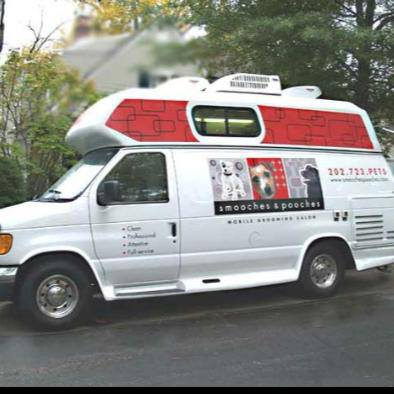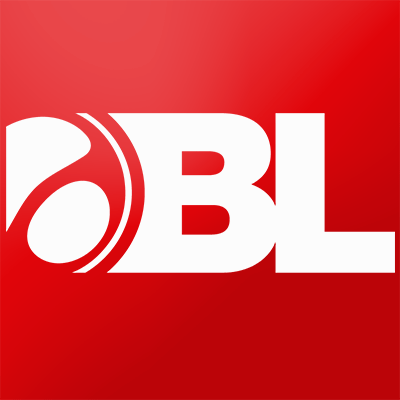Setting up a small business will have its challenges, but the right strategy can result in a lucrative venture. If you’re ready for entrepreneurship but don’t know where to start, there are successful startups to inspire you. This article features small business ideas and examples for beginners, along with tips on how to get started.
When you’re ready to move forward with your small business idea, you should choose a structure and establish your business as a legal entity. Use a reputable provider, such as Incfile, to walk you through the entire process. Not only will Incfile work with you to reserve your trade name, but it will help you decide what type of business to register as. Its agents simplify the process of getting a business license and the necessary permits, and even offer to do the paperwork for you. Get started with Incfile today.
Here are 12 easy-to-start small business ideas for beginners to inspire your own:
1. Ink Toner & Cartridge Refilling
Average Startup Capital: $275
Ink refilling is an inexpensive alternative to purchasing a brand new printer ink cartridge. Aside from being environmentally friendly, all one needs to start this business are ink supplies and a syringe. You can find wholesale sellers of black and colored printer ink compatible with popular brands. They’re usually packaged with refilling tools, which include syringes, needles, plugs, and hand cleaners.
Printer Filling Station started in 2000 but the founder, George Lewis, started researching and building his website for an internet-based printer ink refill business in 1997. He started small and offered refilling ink cartridges priced at $25 to $40, but his cost was about $2 per cartridge.
2. Professional Photographer
Average Startup Capital: $500 to $10,000
One of the more popular passions or hobbies that can turn into a lucrative business is photography. You can advertise to get hired for photo shoots for events, have your own studio, or sell your photos online. Those who venture into this business are usually hobbyists who have already invested in professional cameras, multiple lenses, flashes, and graphic software, so they would only need minor add-ons like business cards, business licenses, and a website.
Jessica Claire photography started 15 years ago and has been hailed as one of the top 10 most influential photographers of the decade by Photo District News.
3. Home Staging
Average Startup Capital: $500 to $10,000
Home Staging is how professionals dress up a house to show buyers the property’s potential. If you have the creative skills of an interior designer, you can start by taking sparse pieces of furniture and arrange it in such a way that appeals to potential buyers. Assuming you already have a computer, internet, and a mobile phone, you can become a home stager for as little as $100 and earn anywhere from $500 to $5,000 per project.
Desert Home Staging is owned by Teri Allen to pursue her passion in interior decorating. Her initial contacts were real estate investors looking to get their properties ready for viewing.
4. Pet Grooming Service
Average Startup Capital: $500 to $2,000
Turn your love for animals into a rewarding business. The Bureau of Labor Statistics sees an increasing demand for pet care workers, and currently, a pet groomer can earn as much as $36,000 annually. You can opt for a mobile business method or work from home and set up appointments with your contacts. The key to building your clientele is to invest in professional cleaning tools for animals of all sizes.
Pooches Grooming started with one mobile pet grooming van back in 2006 by Toni, a former attorney with a passion for animals, especially dogs and cats. She eventually added two more mobile pet vans and now serves clients all over Washington, D.C., and Maryland.
5. Wedding Videography Business
Average Startup Capital: $1,500 to $5,000
If you have a passion for shooting and editing videos, then maybe wedding videography can work for you. Wedding videographers are paid an average of $1,800 for an eight-hour event, and you can opt to rent your gear instead of buying it if you’re just starting. Having a website is crucial to this business so you can show samples of your work and have clients leave reviews.
Stephanie Vermillion is a content creator whose career in filming began while documenting her travels. She discovered her love for filming and editing wedding videos with her personal touch that shows in her final reel. She charges $3,000 for a full wedding video package and her clients leave raving reviews on her website.
6. Private Label Sales
Average Startup Capital: $2,500 to $10,000
This business model lets you buy from manufacturers and sell their products under your own brand. Perfect for serious beginner business owners working with limited capital because you can also opt for drop-shipping so you don’t have to incur the cost of holding inventory. Your income will depend on the type of products you choose to sell and how well you market it, but some serial entrepreneurs report earning as much as $2,000 from their private label business as passive income. Know how to find private label products, design your packaging, and market online as well as through your website.
Dollar Shave Club is a subscription-based business that purchases its razors from a private label manufacturer and then adds their own branding. The business started in 2012 and generated 12,000 customers within 48 hours, thanks to a superb video marketing strategy. Mike, the owner, eventually sold his business to Unilever for $1 billion cash.
7. Mobile Cleaning Service
Average Startup Capital: $1,500
Mobile cleaning service businesses are being hired by offices looking to save on overhead cost and even by modern families with busy schedules. This service can be started initially with cleaning supplies and equipment that are readily available at home, and your own car to help bring you to your client’s home. Your startup capital will include a business license, insurance, setting up your website, some flyers, and business cards. If you choose to work from home instead of setting up a physical office, you’ll only need around $100 to $2,000 to get started. Once you find yourself sufficiently booked for a couple of weeks, then consider purchasing cleaning materials in bulk.
With almost 30 years of experience, Mobile Maid Cleaning has made a name for itself with their competitive rates and professional service. They have built a great brand and is popular among both offices and homes throughout Brevard County in Florida. Their website also allows you to book different services, including a free house cleaning estimate.
8. Translation Service
Average Startup Capital: $1,500
If you can speak more than one language or can arrange to work with a few acquaintances who are bilingual, you can make money starting a translation service from home. Translators charge anywhere from $20 to $100 per hour depending on how complicated the project is. A solo translator business can earn around $20,000 a year. Aside from low startup and overhead costs, you have a broad potential market base across different industries. All you need is a reliable website and a marketing strategy that will get you noticed online and off.
Universal Translation Services started in 2001 with a handful of in-house translators and a couple of project managers. Today, the business has grown into an international company, working with more than 3,000 highly qualified translators. Their unique value proposition is the promise of hiring only the best translator associates and offering competitive prices for a wide variety of translation services 24/7.
9. Online Travel Agency or Consultants
Average Startup Capital: $1,600 to $3,800
Nowadays, a travel agency is a one-stop shop for everything that anyone will need for traveling. This means airfare, accommodations, transfers, and even holiday packages. As a travel consultant, your advantage is to offer the best travel package so clients will pick you over competitors. Travel agencies earn an average of $5,500 for the first two years. Beginners can choose to obtain a franchise from a host agency and make the entire startup easy at the expense of a much larger startup cost.
Florida4Less started in 2006, with Jon Moulding co-founding the business with two other directors. They previously worked for a business specializing in flight booking services until they decided it was time to build their own. They expanded their business, creating a fully bookable website instead of relying on a call center, which made a huge positive improvement to their bottom line.
10. Tool & Equipment Rental
Average Startup Capital: $600 to $1,000
If you find yourself collecting tools and equipment that just eventually get packed away in your garage, you can always start a rental business. Most beginner business people would rather rent their tools and equipment to cut their startup costs. Create a proper inventory management of your equipment, build a website, send out fliers, and start marketing. You can rent out anything from professional cameras to landscaping tools, and all you need to do is to make sure that you maintain your equipment in working order. Handheld drills can be rented out at $45 to $50 a day, while DSLR camera set can go for $200 a day. Once you’ve built a clientele, start planning to invest in additional second-hand or brand-new equipment.
BorrowLenses started in 2007 with co-owners Mark Gurevich and Max Shevyakov renting out a handful of their camera lenses. Today, BorrowLenses has expanded its inventory, offering photo and video gear rentals as well as sale of used equipment. They now have a website where clients can shop or rent conveniently online, assisted by a customer service team that’s also dedicated to video and photography.
11. Closed Captioning or Transcription Services
Average Startup Capital: $600 to $2,000
Transcriptionists can charge as much as $4.50 per recorded minute for general transcriptions alone. It also helps if you have a niche, such as understanding medical or law terms to drive your asking rate higher. Your startup cost will depend on how many transcriptionists you plan to have work for you and if you’re considering a manual or semi-artificial intelligence (AI) method of transcribing. If you plan on working solo, your startup capital will only need to cover business licensing, creating a website, purchasing a license for transcription software, a reliable computer, internet, and headset for one person.
GMR Transcriptions began in 2004 offering transcription services to its clients through a combination of the latest software technology at the time along with skilled transcriptionists. Since then, the business has expanded into translation and even developed its own transcription application.
12. Affiliate Marketing Blog
Average Startup Capital: $600 to $1,000
Probably one of the easiest small business ideas for beginners is blogging for affiliates. The startup cost is relatively small, but you will need to invest time to build your network and create quality content to drive sales for your affiliate partners. Your initial investment would go toward your licensing, creating a professional website, marketing, and advertising efforts. Potential income from affiliate marketing alone can be huge—with the right strategy, you could make enough money to quit your full-time job. And since you have your own website, you can easily add more sources of income from sponsorships, ad placements, and gated content.
Smart Passive Income by Pat Flynn earns mostly from affiliate marketing. His journey started in 2009, promoting exam software on an architecture-related website that has earned him more than $200,000 since. He still actively creates content for his affiliates and receives a seven-figure income annually for his efforts.
Tips for Launching Small Business Ideas for Beginners
According to the Kauffman Index, an average of 540,000 people in the U.S. become entrepreneurs every month, each with a 50% chance of still being operational after five years. This only shows that while it may seem like large companies dominate the market, beginner entrepreneurs can still thrive in a competitive business.
Here are seven helpful tips to launch small business ideas for beginners:
1. Look for Inspiration
People who decide to become entrepreneurs would usually already have a product or service in mind. Even then, there is still the question of how to offer something that’s unique so you stand out from competitors in your industry. Inspiration is that “aha” moment where you know you’ve found a product or service that no one else (or at least just a few) have thought of before.
If it seems like you don’t know where to start, try asking yourself the following questions:
- What products or services do you find yourself using every day?
- What causes your frustrations on a regular basis?
- What stops you or your family from enjoying something you all love?
- What have you wanted to do but not had a chance to for a long time?
- What interesting product or service have you recently read or heard about?
Your answers will reflect your interests, hobbies, and expertise, so you might be surprised at some of the unique ideas you can come up with. Start making a list and do a quick search online to help you get a feel for the market.
2. Conduct Market Research
Once you have made a list of your business ideas, it’s time to conduct market research. It’s important to identify how much demand there is for your business idea and how saturated the market is with similar products or services. When that happens, your next mission will be to find a niche that can provide a unique experience to potential customers.
Some strategies to consider when conducting your market research are as follows:
- Check your competition: This will tell you what kind of products or services are out there and what you need to do to make your own stand out.
- Search for keywords: Most people search online for things they need or want to buy. Use available online tools to show you the most popular search terms related to your product.
- Find upcoming trends: Use tools to help you identify upcoming trends while the supply is low and the demand is high.
Don’t be discouraged if you find yourself reading a long list of competitors in your chosen niche. Remember that people now are willing to spend as much for a good buying experience as they would for a high-quality product. This is where you use your interests and skills to develop a standout business.
3. Start a Business Plan
As a beginner entrepreneur, following a plan makes the process of setting up your business more stable, if not easier. The more limited your capital is, the more important it is to stick to the details so you can protect the time and money you invest as much as you can. Start developing a clear business plan to help you build a solid foundation for your first venture.
Keep these pointers in mind when writing your business plan:
- Know your audience
- Write a compelling executive summary
- Focus on what makes your product or service different
- Keep your explanations short but informative
- Consult with a freelance marketing strategist for your branding
- Make sure that your financial plan is highly detailed
- Outline your short-term and long-term goals
- Create an exhaustive list of your requirements and resources
There’s no scarcity of business plan templates online and with enough research, you can easily find one that will suit your needs.
4. Decide on a Business Name
Your business name is everything. It’s what will give your target audience their very first impression of your business, and what they will remember you by long after your product or service is out of their sight. The challenge is being able to summarize your brand in a few words and making it memorable. You can enlist the help of family and friends to brainstorm, or use a business name generator to help you get started.

According to Twitter co-founder Jack Dorsey, the name was a perfect match between the traditional “chirp from birds” and “a short burst of inconsequential information,” which was exactly what the product was about.
5. Develop Your Branding
Your brand includes everything from your business tagline and company color to your business name. Each element will be associated with your business, so it’s important that your choice helps you send the right message to your target audience. There are a number of ways to brainstorm for these things, but remember to give them serious thought and consider them as a major step in creating your business instead of an afterthought.
Here are some helpful tools and recommendations for your business branding:
- Business logo: Every design element should be significant in your business logo idea.
- Business tagline: This lets you tell your audience about your unique selling proposition.
- Business cards: Your representation offline is as important as your presence online.
- Business website: Your website is your business’ presence online so that you’re able to reach your target audience when they search online for products and services they need.
These tasks can be overwhelming for a new entrepreneur, so consider hiring an expert to help you get started. For as low as $5, you can hire a freelance graphic designer and marketing experts on Fiverr to make sure you have a branding message that maximizes your business’ potential for growth.
6. Decide on a Marketing Strategy
Even veteran entrepreneurs find marketing a challenging task, but a well-thought-out plan can get you started on the right path. Start by creating your ideal buyer persona and work toward strategies that will put your business in front of your target market. Take advantage of free tools to help you collect market data, connect with your audience, and evaluate your marketing campaigns.
Consider the following marketing strategies:
- Content marketing: Create valuable content for your website to generate email leads.
- Email marketing: Send emails to your subscribers to share discounts, updates, and reminders.
- Social media marketing: Engage your customers regularly through social media and turn them into influencers for your business.
- Offline marketing: Distribute your business cards, flyers, gift cards, loyalty cards, and even company swag to gain more visibility with local customers.
- Networking: Attend networking events and exchange contact details with attendees.
Remember that you don’t have to be tied to a single marketing strategy, but you also have to make sure that you use your limited budget wisely. Keep your message consistent and positive so customers will be motivated to engage your business even more.
7. Adjust to a Business Owner Mindset
New business owners will have to be prepared for the responsibilities and expectations required of them. Even for small ventures, this adjustment is crucial if they want their first business to succeed. While these changes don’t happen overnight, being mentally prepared can help you get through stress and stay focused on your goals.
The following suggestions can help you mentally adjust to a business owner role:
- Have more patience: As they say, patience is a virtue. Remember that it can take years before a business can start bringing income. While reading success stories can be a good motivator, remember to keep your goals realistic and refrain from being frustrated during minor setbacks.
- Lean to multitask: Create short-term goals that have your business vision in mind. This will help you keep focused and motivated to achieve milestones for your business.
- Take calculated risks: Calculated risks are a part of becoming a business owner. Accept that you can’t control all the factors, but make sure you’re prepared to bounce back in case your strategy or some of your plans don’t pan out.
- Be proactive instead of reactive: Anticipating possible outcomes is important for a successful business venture. This is where plain risk turns into calculated risk that makes a business owner efficient.
- Be solution-oriented: Your focus should always be on how to correct a problem instead of dwelling on what or who caused the setback. Expect setbacks as a beginner business owner and try to be prepared with contingencies.
- Build your confidence: You need to be able to communicate your vision to your employees and stakeholders. Know the value of your product or service and learn to acknowledge your accomplishments as an expert in your field.
- Learn to accept rejection: It’s important that you know how to take criticism and rejection in stride. This will help you stay positive and focused on solutions.
There’s a big difference between the mindset of a business owner and an employee, so don’t be too harsh on yourself if you need to take time to adjust. No matter how prepared you are, there will always be the risk of making mistakes, but don’t let small failures discourage you from seeing your business through.
Bottom Line
The right business idea and a well-designed plan can help any small business. Whether you’re an employee ready to be your own boss, or just looking to find other sources of income, our list of small business ideas and tips for beginners can help motivate you to start that venture you’ve always dreamed of.
Ready to start your own business? Don’t forget to include a business website that’s supported by a professional web host in your plans. We recommend using Bluehost for reliable web hosting service that makes sure your website is always online. They also offer domain registration and a business email address, all for just $2.95 per month. Check out Bluehost hosting plans.
Did we miss out on your favorite small business ideas for beginners? Let us know in the comments.
Read More












0 تعليقات